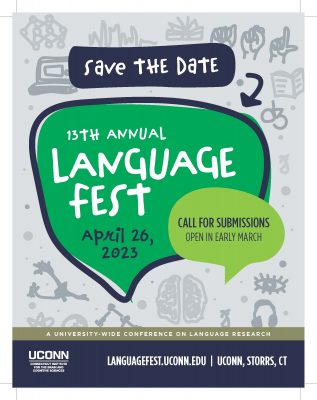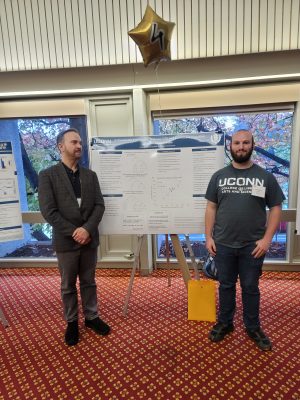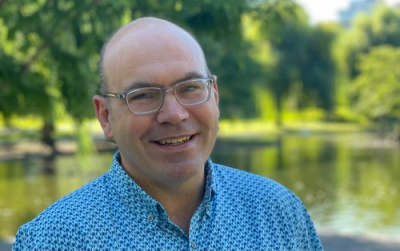Research Coordinator, Connecticut Project
The TMW Center for Early Learning + Public Health (TMW Center) develops science-based interventions, tools, and technologies to help parents and caregivers interact with young children in ways that maximize brain development. A rich language environment is critical to healthy brain development, however few tools exist to measure the quality or quantity of these environments. Access to this type of data allows caregivers to enhance interactions in real-time and gives policy-makers insight in how to best build policies that have a population-level impact.
Job Summary
The Research Coordinator will report to the Senior Project Manager and shall provide on-the-ground coordination, implementation, and research support. The Research Coordinator will work closely with Connecticut-based infant and toddler childcare providers and TMW Center research and curriculum staff. The Research Coordinator shall be responsible for recruiting and consenting study participants, providing regular implementation and technical support to study participants, data collection, and operational and logistical coordination of various study activities.
As a primary on-the-ground point of contact for study participants, the Research Coordinator shall build positive relationships with childcare centers, classroom teachers, families and OEC staff to ensure strong communication and a successful research partnership with the TMW Center.
Responsibilities
Participant Outreach, Recruitment & Data Collection:
- Serves as a primary point of contact for current and future research study participants.
- At the direction of TMW staff, conducts targeted outreach and recruitment to study participants (child care sites, early educators, parents, etc.). Organizes and coordinates recruitment activities, in collaboration with TMW staff.
- Obtains and maintains consents for all program participants in accordance with IRB protocol and TMW research standards.
- Ensures ongoing and new research subjects are on-boarded properly.
- Regularly reports updates on participant recruitment, study progress, and study completion to relevant parties.
- Partners with TMW Center staff members and other stakeholders to ensure current and upcoming studies have adequate amounts of participants.
- Collaborates actively with TMW Center staff members and external stakeholders to strategize approaches for pursuing new participants and partners.
- Maintains regular contact with study participants, updating them on study progress and ensuring that their contact information is updated on a routine basis. Maintains records of all communication efforts with participants.
- Implements data collection at the direction of TMW Center staff. Ensures quality of data collection and adherence to best practices.
- Supports TMW Center researchers with other aspects of outreach, recruitment, consent, data collection and support as requested.
Implementation & Participant Support:
- Under the direction of TMW staff, implements the TMW Center’s ECE professional development strategy and novel technology within study sites (childcare and early education classroom settings) and provides ongoing support for implementing teachers and site leadership.
- In coordination with and under the direction of TMW staff, provides implementation support, coaching, and training to study participants, ensuring that study activities are delivered with fidelity and that technical support is available promptly. This includes but is not limited to: regularly visiting study sites across Connecticut for routine in-person check-ins; providing technical assistance, troubleshooting and on-call technical and implementation support to study participants (including outside of business hours, as needed); ensuring proper implementation and delivery of TMW program in accordance with study protocol; tracking data related to these processes and other aspects of implementation; supporting TMW Manager of Training and other TMW staff by coordinating and/or facilitating training sessions and regular meetings for implementing staff.
Research Support:
- With other TMW teams, helps coordinate and implement formative testing, early pilots and research studies in partner sites.
- With other TMW teams, engages with study participants and other partners to collect data and gather user feedback to inform device optimization, program refinement, professional development model and implementation model.
- Supports implementing staff within study sites (childcare and early education classroom settings).
- Facilitates and coordinates video recording, data collection and other classroom-based research activities, as needed, under the direction of TMW’s Research team.
- Issues payments and other incentives to study participants. Ensures all payments are issued correctly and tracked with fidelity. Ensures full compliance with all University and funder obligations related to human subject payments and recordkeeping.
- Distributes technology and assists with inventory management, coordination and delivery logistics for technological devices and other materials provided to study sites.
Partnership Building:
- Builds and nurtures relationships with child care centers, classroom teachers, families, OEC staff and other stakeholders to ensure strong communication and ultimate success between the TMW Center and these individuals and groups.
- Helps identify additional childcare providers or organizations that could serve as future research partners.
- Serves as an ambassador of the TMW Center’s mission and resources to partners, families/caregivers, and the public.
Project Support:
- Provides technical, administrative and logistical support to the Connecticut early childhood research project team.
- Participates in meetings and planning sessions with TMW staff to share implementation observations and provide updates to inform program and process improvement.
Other Responsibilities:
- Maintains technical and administrative support for a research project.
- Installs, sets up and performs experiments; interacting with students and other laboratory staff under the direction of the principal investigator.
- Maintains recruiting and scheduling research subjects; assisting with developing or amending study protocols; assisting with developing data collection tools; assisting with building databases; and providing general administrative support. Has general awareness in research techniques or methods, regulatory policies and procedures, and relevant scientific field.
- Performs other related work as needed




